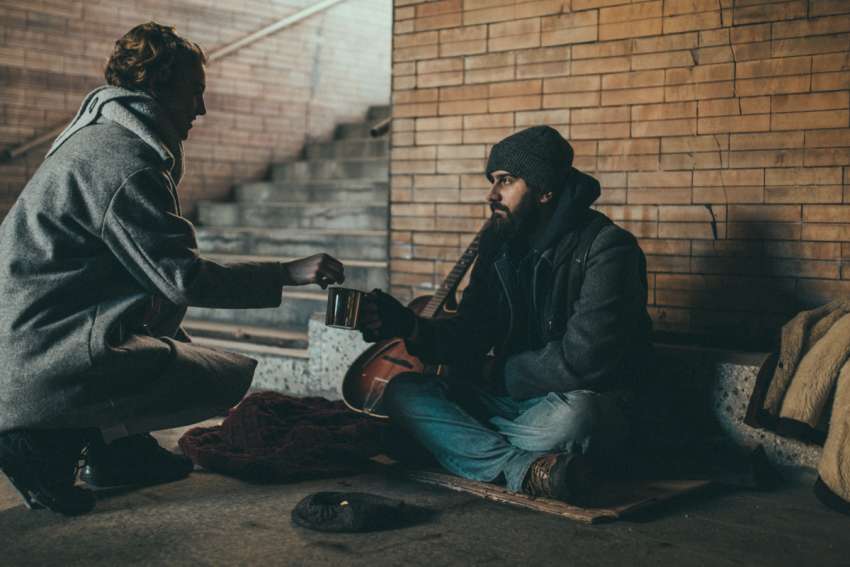There was nothing for it but to minister on so I pulled my hoodie over my head and splashed my way downtown. I crossed the road to pass the usual group of addicts and “girls of the night” who hang around an old church. From the crowd, someone shouted, “Hey, Robert Kinghorn.”
I said, “Yes, that’s me, but how do you know my name?” He burst out laughing and said, “Because I am Robert Kinghorn too. I was up at your house 17 years ago and had a meal with your family before I went over to your church to talk to the parishioners.
“Now I remember,” I said. “How are you?”
“I’m 17 years clean,” he said proudly, “and doing well in business. Seeing you here tonight lets me know that I am doing the right thing. I come down like you to speak to people and perhaps help them out with some money.”
With a “man hug” we said goodbye, and I continued into the teeming rain.
I was now in another part of the city where there is heavy drug use, and was surprised to see someone I had not seen for about six years. My memory of him was that he was a tall and stately Muslim man who had been educated by the Jesuits,
“I loved the Jesuit training, especially some of the authors they introduced me to,” he told me. “T.S. Eliot was my favourite. I loved his play, Murder in the Cathedral, about the murder of Archbishop Thomas Becket. I cried when I read it.”
Now before me, I saw a shadow of his former self. His long coat was flying open in the rain. He was clearly on drugs. I said hello to him as we passed but there was barely a response.
I then made my way to search out one of the regulars on my visits. You may remember her from previous columns as the lady who lives in the doorway of a shelter. At least that’s where I usually find her late in the evening. When she saw me, she said, “You’re going to drown out there, come in here and sit next to me.”
I stepped up into her “house” and we sat shoulder to shoulder out of the rain.
“What are you writing in the book there?” I asked.
“Oh, that’s my spiritual writing. I write the things that come into my mind. Do you want to read what I have just written?”
She passed the book to me, and the writing was scribbled, and barely legible. Somehow it seemed to me that it reflected her scattered thoughts. But it was clear from the flow of the scrambled words that she was longing for hope in her life.
When I finished reading, I put my hand on her shoulder and wondered if she would pull away. But she sat looking at me and listening intently.
I said, “I can see the Spirit in you. I believe you will make it, like many others I have met. I can see light in you. I have met many people on these streets with that light deep within them. For some it has taken a while, but they are now off the streets. I think you are going to make it.”
She smiled sadly and whispered her deepest thoughts, almost as if they came from her very soul.
“That’s what I long to have, a little clarity. Light in this dark world.”
She looked in my eyes as I whispered, “I’ll pray for you, you are a good person.”
As I left, she asked for another of my business cards with my phone number and email on it. “I keep losing everything I have. Sorry, I don’t know where I put the last one.”
Henri Nouwen once wrote, “When we feel hopeless, we have to hold on to tenderness. Love is the answer, community is the context, and tenderness is the methodology. This is how we connect with people.”
(Kinghorn is a deacon in the Archdiocese of Toronto.)


